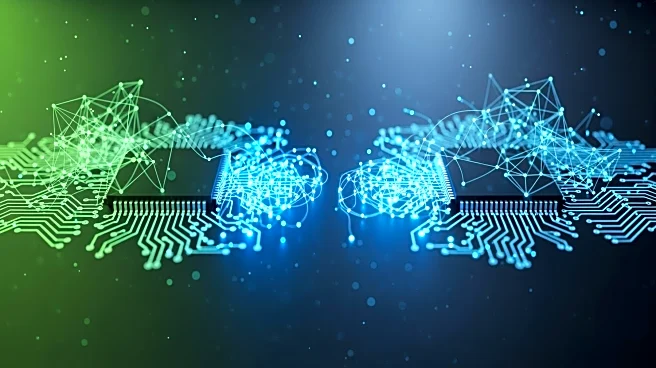Rapid Read • 8 min read
The Black Hat Conference 2025 in Las Vegas has underscored the growing influence of artificial intelligence in cybersecurity, with discussions focusing on AI's role in both cyber threats and defenses. Keynote speakers, including Nicole Perlroth, emphasized the shift in cyber threats from traditional network attacks to more sophisticated AI-driven challenges affecting public discourse and critical systems. The conference also highlighted the human toll within the cybersecurity industry, with attendees expressing concerns over burnout and the impersonal nature of AI-driven hiring processes. The U.S. government continues to advocate for zero-trust network designs to mitigate these evolving threats.
AD
The discussions at Black Hat 2025 reflect significant shifts in the cybersecurity landscape, where AI is not only a tool for defense but also a vector for new types of attacks. This evolution poses challenges for industries reliant on digital security, as traditional defenses may no longer suffice. The emphasis on zero-trust architectures by the U.S. government indicates a strategic pivot to safeguard against AI-driven threats. Additionally, the workforce challenges highlighted at the conference suggest a need for more human-centric approaches in cybersecurity hiring and retention, impacting the industry's ability to attract and maintain skilled professionals.
As AI continues to reshape cybersecurity, stakeholders may need to invest in advanced training and development programs to equip professionals with the skills necessary to combat AI-driven threats. The U.S. government's push for zero-trust architectures will likely lead to increased adoption across federal agencies, potentially influencing private sector practices. The industry may also see a shift towards more personalized hiring processes to address workforce dissatisfaction and improve retention rates. Future conferences may focus on bridging the gap between technological advancements and human resource needs.
The ethical implications of AI in cybersecurity are profound, as automated threats challenge the balance between privacy and security. The conference's focus on human resilience suggests a growing recognition of the need to support cybersecurity professionals beyond technical skills, addressing mental health and job satisfaction. Long-term, the integration of AI into cybersecurity may necessitate new regulatory frameworks to ensure ethical use and prevent misuse.
AD
More Stories You Might Enjoy










